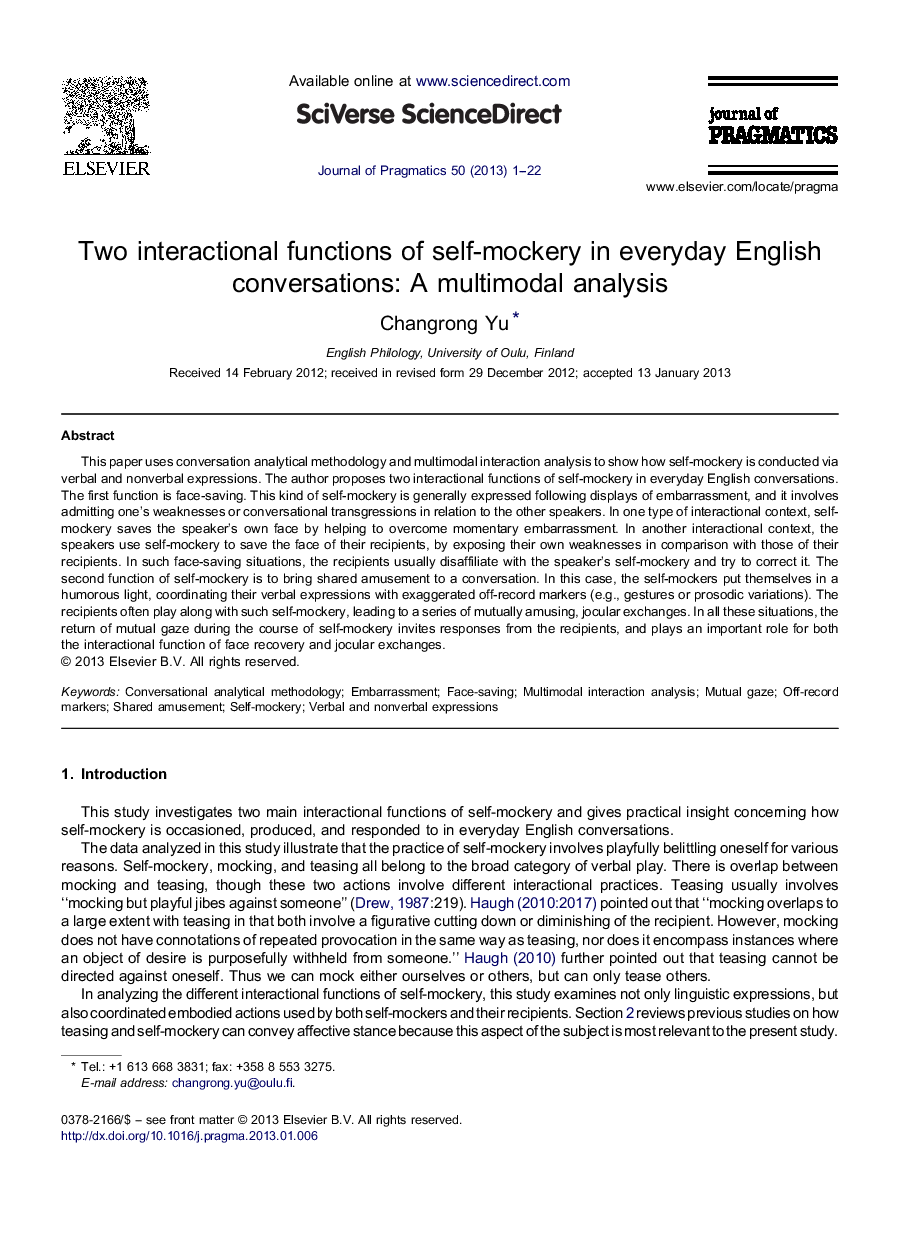| کد مقاله | کد نشریه | سال انتشار | مقاله انگلیسی | نسخه تمام متن |
|---|---|---|---|---|
| 932921 | 1474749 | 2013 | 22 صفحه PDF | دانلود رایگان |

This paper uses conversation analytical methodology and multimodal interaction analysis to show how self-mockery is conducted via verbal and nonverbal expressions. The author proposes two interactional functions of self-mockery in everyday English conversations. The first function is face-saving. This kind of self-mockery is generally expressed following displays of embarrassment, and it involves admitting one's weaknesses or conversational transgressions in relation to the other speakers. In one type of interactional context, self-mockery saves the speaker's own face by helping to overcome momentary embarrassment. In another interactional context, the speakers use self-mockery to save the face of their recipients, by exposing their own weaknesses in comparison with those of their recipients. In such face-saving situations, the recipients usually disaffiliate with the speaker's self-mockery and try to correct it. The second function of self-mockery is to bring shared amusement to a conversation. In this case, the self-mockers put themselves in a humorous light, coordinating their verbal expressions with exaggerated off-record markers (e.g., gestures or prosodic variations). The recipients often play along with such self-mockery, leading to a series of mutually amusing, jocular exchanges. In all these situations, the return of mutual gaze during the course of self-mockery invites responses from the recipients, and plays an important role for both the interactional function of face recovery and jocular exchanges.
► The main interactional functions of self-mockery are face saving and shared amusement.
► Face saving involves admitting one's weakness in relation to others.
► Self-mockery saves the speaker's own face by overcoming momentary embarrassment.
► Mocking oneself by using playful off-record markers can lead to jocular exchanges.
► Self-mockers face their weaknesses in relation to others by returning a mutual gaze.
Journal: Journal of Pragmatics - Volume 50, Issue 1, May 2013, Pages 1–22